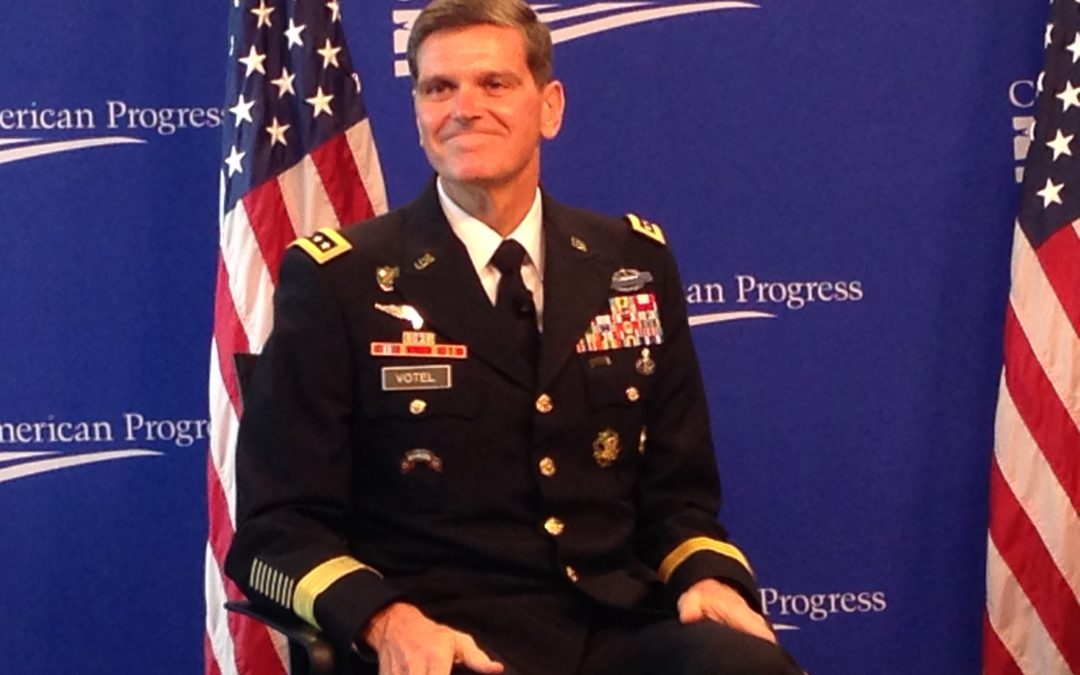WASHINGTON — Army Gen. Joseph Votel, head of U.S. Central Command, warned Wednesday that “there will be setbacks” and “heavy fighting” in the battle to retake Iraqi city Mosul.
“There’s going to be a lot to contend with,” said Votel, whose command includes Iraq, Afghanistan, the Middle East and North Africa. “ISIS has had two years to prepare this area.”
Mosul, a major Iraqi city that once had 2 million residents, fell to the control of ISIS more than two years ago. ISIS leader Abu Bakr al-Baghdadi declared the territory under control as the caliphate, leaving many of the city’s inhabitants tucked under the rule of the so-called Islamic State.
Backed by U.S. advisors, air support and Kurdish fighters, tens of thousands of Iraqi security forces launched Monday the fight to take back the city.
The main role of U.S. advisors in the struggle to recapture and stabilize Mosul is to inject American “high-tech capacities” when necessary and desirable by the local forces, Votel said.
The ISIS-held area has been strewn with booby traps, tunnels, and suicide bombers. In response to fears that ISIS might use chemical munitions in the battle over Mosul, Votel said the U.S. would be prepared to deploy airstrikes, disrupt ISIS’ ability to export oil, and infiltrate its leadership. But he said there is only a “low level” possibility of ISIS using chemical weapons.
“[ISIS] is an adaptive threat,” Votel said in a talk at the Center for American Progress. “We don’t respect their ideology but we respect them as an enemy.”
In the third day of the offensive, Votel offered an optimistic report to the think tank audience. He said that Iraqi security forces moving toward the city were “on track with the plan,” even ahead of schedule in some places. He praised the cooperation between the Iraqi military and Kurdish Peshmerga fighters.
The operation to seize back control of Mosul is expected to take weeks- or months. But Votel called the coordination between the Iraqi security forces and Kurdish leadership a “watershed.”
“We want to move fast enough as we keep pressure on the enemy,” Votel said, “but move slow enough so we don’t add to the human damage there.”
About 1 million civilians are still living under the control of ISIS, the general said. Security forces have used radio and TV communication and leaflet droppings to warn Mosul residents to stay in their homes. Reports by the charity, Save the Children, suggest at least 5,000 citizens crossed the border into an already overcrowded refugee camp in Syria.
The United Nations has set up camps in expectation of a humanitarian crisis.
“We have less control on the humanitarian aspect, and how that plays out,” Votel said.
While the Mosul operation is underway, Votel said the U.S. military is also keen on building a coalition that would also drive ISIS out of Raqqa in Syria. In order to engage in this two-pronged approach, U.S. forces would pressure ISIS in Syria through isolation and airstrikes.
“When we apply pressure on Islamic State forces,” Votel said, “they do squirt out, they try to go to their locations, they move leaders, they move the bulk of their forces. They try to relocate their operations.”
After the fighting, the city will have to be stabilized and rebuilt. Iraqi Prime Minister Haider al-Abadi has begun developing mechanism to help ensure that the Iraqi government, tribal groups, and the Kurds are all involved in developing new governance.

